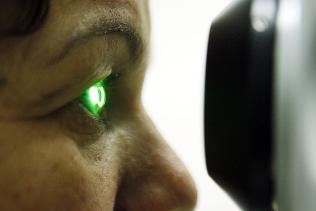
Dr Ali Al-Fiadh
Dr Ali Al-Fiadh is an Interventional Cardiologist with expertise in general cardiology, echocardiography, coronary angiography, angioplasty, and preventive medicine. He has completed his interventional cardiology fellowship at Austin Hospital and his PhD with The University of Melbourne.
Dr Ali Al-Fiadh also runs the Chest Pain Clinic at Austin Hospital, performs interventional procedures at the Austin Hospital, Warringal Private, Knox Private and The Valley Private Hospitals. He is also involved in overseas hospitals, particulary Missan Centre for Cardiac Disease and Surgery in Iraq.
What is an interventional cardiologist?
An interventional cardiologist treats cardiovascular diseases such as coronary heart disease by inserting catheters into an artery (the intervention). This procedure is used to open up blocked arteries that would have potentially caused heart attack and is a minimally invasive procedure. Interventional cardiologists will then gather data about the patient’s condition and work towards repairing the damage.
Dr Al-Fiadh also specialises in echocardiography where he can read an echocardiograph of the heart and determine whether or not there is an abnormality, and if there is one, what the next step to recovery is.

Dr Al-Fiadh (Far Right) at Missan Centre for Cardiac Disease and Surgery in 2014.
Research
Dr Al-Fiadh has done excessive research in methods of discovering biomarkers of heart disease susceptibility inpatients and then implementing a preventative approach.
These methods include vascular reactivity and plasma biomarkers, as well as changes in the retinal micro vascular structure.
Featured are some of the research he has been involved:
Al-Fiadh, A. Wong, TY. Kawasaki, R. Clark, DJ. Patel, SK. Freeman, M. Wilson, A. Burrell, LM. Faroque, O. (2015) Usefulness of retinal microvascular endothelial dysfunction as a predictor of coronary artery disease. The American Journal of Cardiology, 115(5), 609-13.
Al-Fiadh, A. H., Farouque, O., Kawasaki, R., Nguyen, T. T., Uddin, N., Freeman, M., … & Wong, T. Y. (2014). Retinal microvascular structure and function in patients with risk factors of atherosclerosis and coronary artery disease. Atherosclerosis, 233(2), 478-484. Click here to read the Herald Sun article.
Al-Fiadh, A. H., Andrianopoulos, N., Farouque, O., Yan, B. P., Duffy, S. J., Charter, K., … & Clark, D. J. (2011). Contemporary outcomes in women undergoing percutaneous coronary intervention for acute coronary syndromes. International journal of cardiology, 151(2), 195-199.
Kreis, A. J., Nguyen, T. T., Wang, J. J., Rogers, S., Al‐Fiadh, A. L. I., Freeman, M., … & Farouque, H. O. (2009). Are retinal microvascular caliber changes associated with severity of coronary artery disease in symptomatic cardiac patients?. Microcirculation, 16(2), 177-181.
Ajani, A., Reid, C., Stephen, J., D., Andrianopoulos, N., Al-Fiadh, A. H, … David, J., C. (2008). Outcomes after percutaneous coronary intervention in contemporary Australian practice: insights from a large multicentre registry. The Medical Journal of Australia, 189(8), 423-428.

